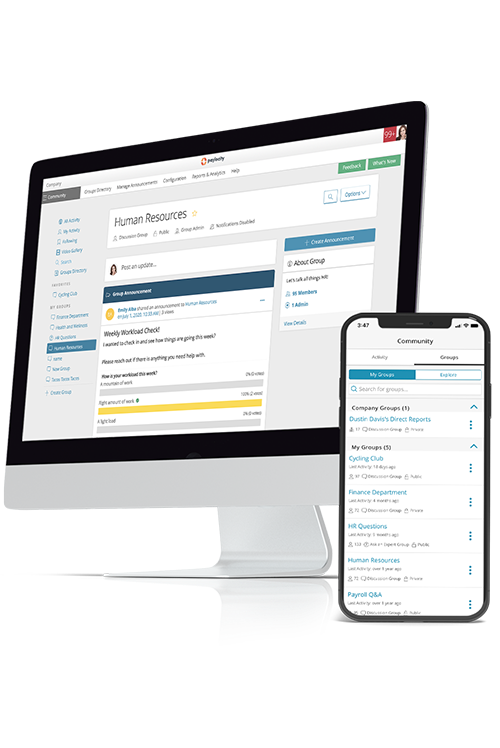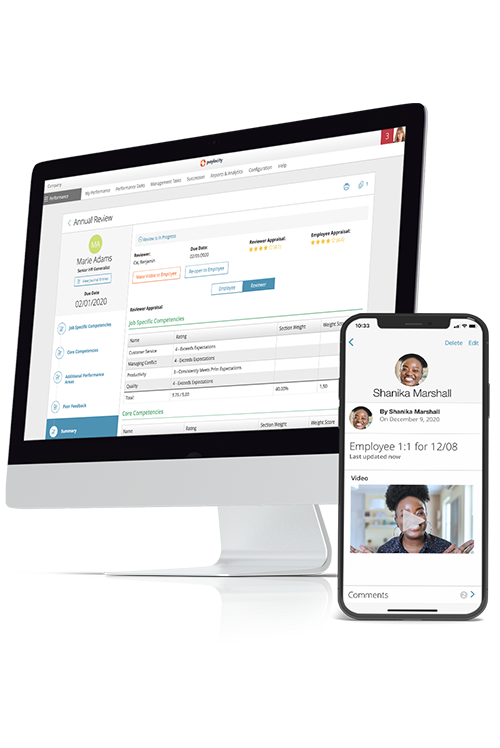
Engaging Gen Z in the Workplace in 2023 and Beyond
Every generation brings new perspectives to the workplace. Why does Generation Z seem so different?
Organizations just now getting over the millennial hump are finding that attracting and engaging Gen Z is a whole new ballgame. To some HR professionals and managers, this newest group of employees is a contradiction in terms.
Growing up with continuously advancing technology has made Gen Z quick to adapt and eager to learn. However, their attitudes toward work have been shaped by economic uncertainty and a global pandemic, leaving some young workers wary of making long-term commitments.
Let’s walk a mile — or a few years — in Gen Z’s shoes to better understand their needs and expectations on the job.
Who Are Generation Z and What Do They Want?
Even defining Generation Z starts with some ambiguity. Various websites will tell you that Gen Z spans from 1995–2009, or 1997–2012, or some range in between.
This means:
- The first Gen Zers were 11-13 years old at the height of the Great Recession. Between 2007 and 2010, nearly 7 million jobs were lost, and the number of children with an unemployed parent increased by 67%.
- Younger Gen Zers graduated from high school and began college remotely during the pandemic. By spring 2020, 87% of undergraduate students experienced enrollment disruption or change.
It’s easy to see why some Gen Zers aren’t eager to put their trust in one company or one job. Although there are some signs employee loyalty may be on the rise, 40% of Gen Zers plan to leave their jobs in the next two years, according to a 2022 Deloitte study. That same study indicated that although Gen Z’s job hunt is often motivated by a pay increase, good work-life balance and learning opportunities are also top priorities.
These priorities echo the sentiments of Gen Z’s most recent predecessors. But organizations are realizing quickly that Gen Zers are not just millennials on steroids.
Millennials vs. Generation Z: What’s the Difference?
On the surface, it may seem that millennials and Gen Z want the same things from their careers — fair pay, opportunity to grow, and work-life balance. What’s different between these generations is the order of their priorities. Where Generation Z is driven by the desire for employment stability, millennials especially prize flexibility.
Many millennials entered the workforce between the September 11 terrorist attacks and the Great Recession. This generation, born between 1981 and 1997, brought new focus on values and purpose that took many companies by surprise. And while work is important to millennials, having time to spend with family and friends is just as important.
Hear more about what we’ve learned by working with millennials and how to avoid some of the same mistakes with Gen Z in this podcast with Hana Ben-Shabat from Gen Z Planet.
What Does Generation Z Expect in the Workplace?
Not unlike other generations, Gen Z wants to find meaning in their work and be rewarded for their efforts. But when it comes to creating a company culture that’s Gen Z-friendly, there are three themes organizations should take to heart:
- Technology: For Gen Z, technology isn’t a tool — it’s a way of life. Born well into the digital age, they have never known a time without the internet, smartphones, and streaming media. In the workplace, Gen Zers expect access to modern technology, with 91% saying an employer’s technology would be a factor in choosing a job.
- Diversity: Gen Z is the most diverse generation to date, with 47% of employees identifying as Black, Indigenous, or people of color (BIPOC.) Rather than stand-alone initiatives, they expect to see diversity and inclusion reflected across all levels of your organization.
- Transparency: With so much information available to them, Gen Z wants to know why business decisions are made, especially those that impact them directly like pay and promotions. While they’re looking for ways they can grow their own career, they also want to understand who they’re working for and what the organization stands for.
Millennials, Gen Xers, and baby boomers have seen these three factors evolve over the past 40 years and even demanded they be addressed more effectively in the workplace. Now, Generation Z expects technology, diversity, and transparency to be woven throughout the fabric of an organization’s culture.
5 Strategies to Engage Generation Z at Work
A disturbing 54% of Gen Z and younger millennials are not engaged at work. While workers in the early stages of their careers often go through an exploratory phase, Gen Z isn’t restless or unfocused. They have definite ideas about what they want from an employer and won’t engage if their needs aren’t met.
Keeping Gen Z’s experiences and expectations in mind, how can organizations better connect with this growing segment of the workforce?
1. Emphasize Skills-Based Learning
Generation Z is ambitious, but many are more interested in expanding their skills deep and wide rather than climbing the corporate ladder. At the same time, some Gen Zers who started working during the pandemic have never worked onsite and may not have developed the soft skills usually associated with career success, like negotiating, networking, and social stamina.
Of Gen Zers who are considering a change in employment, 76% say they want more opportunities to learn and practice new skills — the same percentage as those looking for higher compensation.
With an entrepreneurial mindset, they want to gain the skills that will help them grow their careers in multiple ways. Providing customized learning and development opportunities can help Gen Zers fill in skills gaps while following a career path that excites them.
2. Incorporate Popular Technology
As Gen Z proliferates the workplace, they’re bringing their consumer-oriented tech preferences with them, specifically in five areas: hardware, software, security, privacy, and mobility. While organizations may not be able to meet all their expectations, be prepared to explain why certain technology is used (see “Transparency” above.)
To connect with Gen Z, stay on top of tech trends and integrate them into your communication and learning strategies. For example, a video announcement from leadership is more likely to grab their attention than an email.
Likewise, having a mobile HR app that lets employees manage their schedules, access important information, and keep in touch with coworkers on the go is a technological convenience many Gen Zers may expect.
3. Support Mental Well-Being
Similar to millennials, work-life balance ranks high on Gen Z’s list of priorities. However, perhaps in response to the unprecedented challenges they’ve lived through in a short time, Gen Z is looking for more emotional support from employers. For now, organizations are coming up short, with Gen Z less likely than other generations to feel that their workplaces are psychologically and emotionally healthy.
One way companies can help Gen Z manage the stressors of everyday life is to give them more autonomy. On Demand Payment offers employees financial flexibility by providing them access to their earned wages during the active pay cycle, which can help reduce financial stress — and can be a differentiator for recruiting and retaining Gen Zers.
4. Ask For and Give Input
Like most employees, Gen Z wants to know their work has impact and their opinions are valued. Here again is an opportunity for organizations to leverage Gen Z’s curiosity and drive to help them grow personally and professionally. Contrary to some popular beliefs, Gen Z is not more sensitive than other generations — they actually prefer honest, constructive criticism that provides clear steps for improvement.
The annual review just isn’t going to cut it for this generation. An integrated performance management system that enables transparent, two-way communication between employees and managers can help fulfill Gen Z’s need for regular feedback. Employee experience features like journaling, surveys, and peer recognition make employees active participants in their own development.
5. Help Make Connections
Given that many Gen Zers began their careers remotely, it’s no surprise they crave human interaction through the workplace. Now the challenge is finding ways to connect employees meaningfully across locations — and generations — whether they work onsite, remotely, or hybrid.
Creating a sense of community means more than virtual ice breakers and monthly townhalls. HR can facilitate connections by bringing together people who share goals, interests, and passions through mentorships, employee resource groups, and volunteer opportunities. An online social collaboration tool can help those connections grow organically.
Ensuring Gen Z feels connected to your organization and their colleagues takes planning and intentionality. Here are nine more ideas to get you started with a multigenerational engagement strategy.
Choosing HR Technology for a Multigenerational Workforce
It may sound contradictory, but the more advanced the technology, the better HR can personalize each employee experience.
A unified HR and payroll system pairs the capabilities HR needs with what employees are looking for — simplifying processes, breaking down communication barriers, and empowering employees to take ownership of their careers and work relationships.
More automation means more time HR practitioners can spend with people, and increased visibility into employee progress benefits the whole organization by driving job satisfaction and growth.
With Gen Z’s deep-seated desire to connect with peers and broaden their skills, it’s imperative companies provide them with the communication and learning tools they want to use.
See how our software suite can help Gen Z transition smoothly into your workforce while improving engagement across all levels of experience.



?$Hero-Card$)